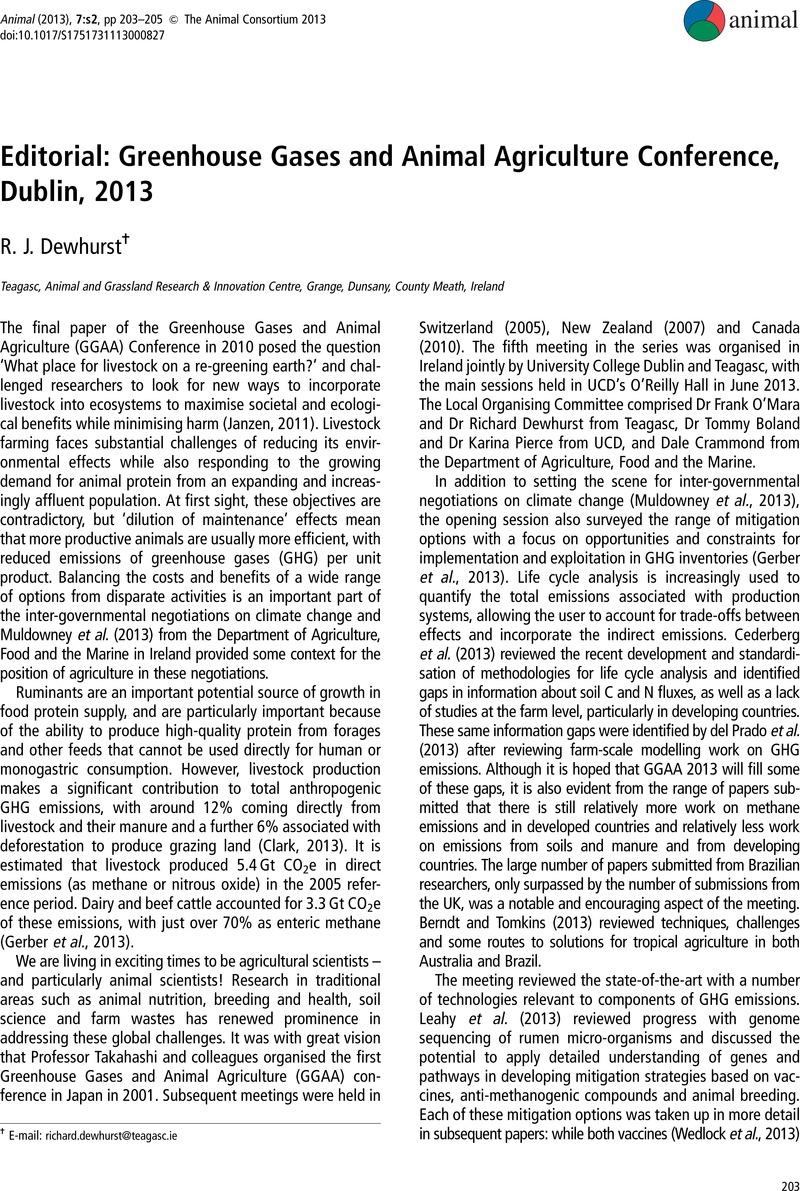Crossref Citations
This article has been cited by the following publications. This list is generated based on data provided by Crossref.
Berndt, A.
Abdalla, A.L.
and
Pereira, L.G.R.
2020.
Editorial: Greenhouse gases in animal agriculture: science supporting practices.
Animal,
Vol. 14,
Issue. ,
p.
s425.



